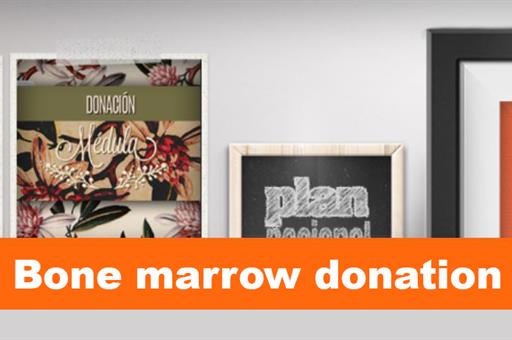This was confirmed by a report on the 2019 data drawn up by the Spanish Register of Bone Marrow Donors (Spanish acronym: REDMO), managed by the Josep Carreras Foundation, and the Spanish National Transplant Organisation (Spanish acronym: ONT) that was published this week.
A total of 3,444 transplants of haematopoietic progenitor cells (HPT) - or blood stem cells - were performed over the last year, which include bone marrow, peripheral blood and umbilical cord transplants. 2,146 of those were from the patient themselves, while 1,298 were obtained from a donor. These figures confirm the continued growth of this therapeutic technique, representing a 2% increase in transplants when compared with 2018.
Spain also has 64,662 units of umbilical cord blood (UCB), 8% of all such units stored worldwide (790,000) and the largest register in Europe, the third largest in the world behind the United States and Taiwan. In 2019, 122 units of UCB were sent for transplants in seven domestic patients and 115 overseas. UCB from altruistic donors was used in 19 unrelated transplants. This activity has been falling due to the development of other types of transplants.
The data on activity last year also highlight that HPT activity has continued to increase, growing by 50% over the last decade. However, the strongest growth is clearly seen in the 60% increase in allogeneic transplants (those coming from a donor) and the 76% increase in unrelated donors, as a result of the extensive development of this treatment option. Thanks to all these donation options, it can therefore be concluded that all patients who need a transplant have access to a suitable donor.
At the close of the year, 420,730 donors were registered with the Spanish Register of Bone Marrow Donors. A total of 221 donations were carried out thanks to those donors, 10% more than in the previous year. 36,108 new donors joined the register over the course of 2019.
The average donor age is 34
The average age of the available donors is 34 and the average age of the donors who joined the register in 2019 is 30. 53% of available donors are under 40. In terms of gender, 63% of all donors are women and 66% of the new donors in 2019 are also women.
Last year, 24% of all unrelated donors came from the Spanish register. This increase facilitates the logistics and improves the sustainability of the Spanish system, and is one of the key points of the Spanish National Bone Marrow Plan.
Spain stands among the top-five in Europe for donation
There are now more than 36 million donors registered around the world and Europe, with almost 16.5 million, is the continent with the strongest haematopoietic progenitor cell donation culture. In absolute terms, Spain is fifth on the European ranking of bone marrow donors, behind Germany, Poland, the United Kingdom and Italy. It has climbed one position on this ranking since last year.
In 2019, 869 new unrelated donor searches were undertaken for Spanish patients. 1,394 compatible unrelated donors were found for 757 patients, which is almost two donors per patient. Over the last decade, the average time to find a donor has fallen by 45% and now stands at 28 days.
The Spanish National Bone Marrow Plan was launched in 2013. Since then, the Spanish Ministry of Health and the regional government authorities have made a significant economic effort to develop the plan. The success of this programme stems from joint endeavours by the ONT, the healthcare professionals, the scientific bodies, the Josep Carreras Foundation and the patient associations. Finally, the national haematopoietic progenitor cell transplant programme would not be possible without the donors, to whom we are indebted for their generosity as it enables a second chance to be given to those patients who need it.
Non official translation





